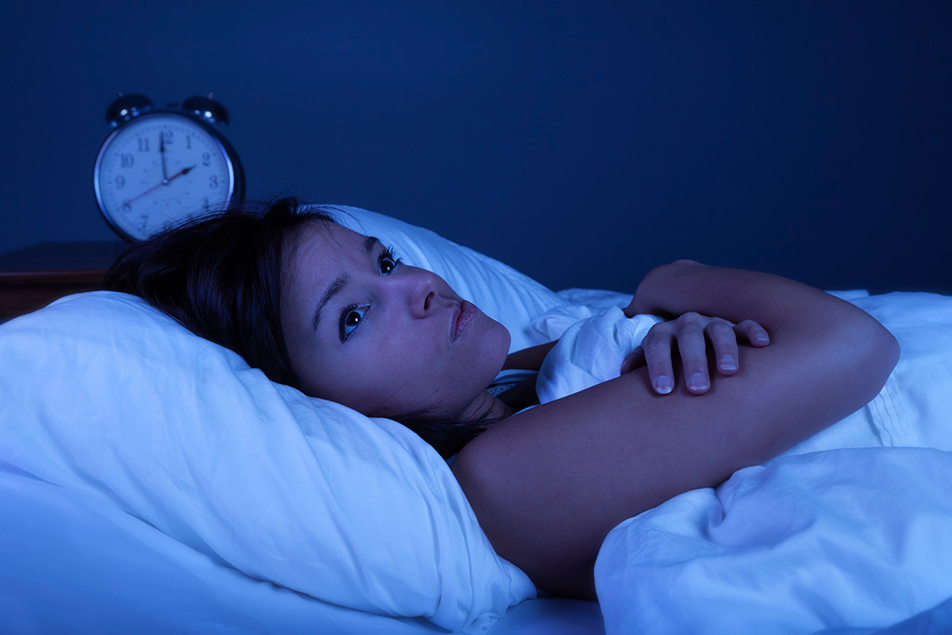
It’s 3 a.m. and you’re wide awake. You’ve tried all the tricks you can think of, but you can’t seem to settle back to sleep. This common, frustrating scenario can bleed over into the following day, causing you to feel tired and less energetic. We enlisted the expertise of Lauren Boles, NP, PPG – Sleep Medicine, who explains the best strategies for coping with a restless night.
What are some of the reasons people wake up during their sleep cycle?
Awakenings during sleep can occur for many reasons, including chronic pain, untreated sleep disorders like snoring or sleep apnea, acid reflux, stress, anxiety and/or depression, restless leg syndrome, need for urination, caring for young children or an elderly loved one, a disturbance from a bed partner, outside noises, or the use of any alcohol, nicotine or caffeine too close to bedtime.
How long should you stay in bed and try to fall back asleep?
If an awakening occurs, try to limit the amount of time you lay awake in bed to only 20 minutes. If you’re still awake after 20 minutes, get out of bed and go to a dimly lit room in the home.
Are there any strategies people can use while still in bed that might help?
Avoid watching the clock or checking your cell phone. Maintain a bedroom environment that is comfortable for sleep with cooler temperatures. The recommended amount of sleep for adults is 7-9 hours per night.
Are there any strategies that can be helpful when you get out of bed during an awakening?
If you do get out of bed, avoid bright lights and any technology that involves screens. To help yourself relax, try listening to calming music, mindfulness, meditation, muscle relaxation or breathing exercises. Reading a boring book or article is another option, just nothing too stimulating. Only return to bed when you feel sleepy again.
When would these awakenings be considered a sleep disorder?
Insomnia can be trouble with falling asleep or staying asleep, or both. Chronic insomnia is trouble sleeping at least three nights per week for three months or more out of the year.
When should you contact a Sleep Medicine provider?
Insomnia needs to be addressed when it impairs daytime functioning due to sleepiness, overall fatigue, or issues with concentration or memory.
How can I clean up my sleep hygiene?
Sleep hygiene is very important. Here are some tips to consider:
- Keep a consistent bedtime and wake time. Have a bedtime routine that involves a “wind down” period.
- Make sure your bedroom environment is comfortable and dark. Keep it quiet if that is what you prefer, or a sound machine for noise if needed.
- Avoid technology before bedtime. No TV watching or cell phone/tablet use in bed. You may have to charge your cell phone across the room to avoid the temptation to look at it while lying in bed.
- Avoid alcohol, smoking and caffeine for at least a few hours before your bedtime. Alcohol can disturb sleep later in the night and cause awakenings. Nicotine acts as a stimulant and has effects similar to caffeine. Avoid smoking in the middle of the night if awake. Caffeine use should be stopped about 6-8 hours before bedtime so that it can be completely eliminated from your body. Caffeine too close to bedtime can make it difficult to fall asleep, and cause increased awakenings and shallow sleep.
- Avoid naps as much as possible, but especially later in the day. All naps should be completed by 2 p.m. and should be limited to 30 minutes or less.
- Try to avoid exercising within four hours of bedtime so that falling sleep is not difficult.
- Avoid greasy foods and large meals close to bedtime. Avoid excessive liquids in the evenings and close to bedtime to prevent bathroom trips through the night.
If you have concerns about your sleep quality or suspect you might have a sleep disorder, speak with your primary care provider and discuss the possible benefits of a Sleep Medicine consultation.




